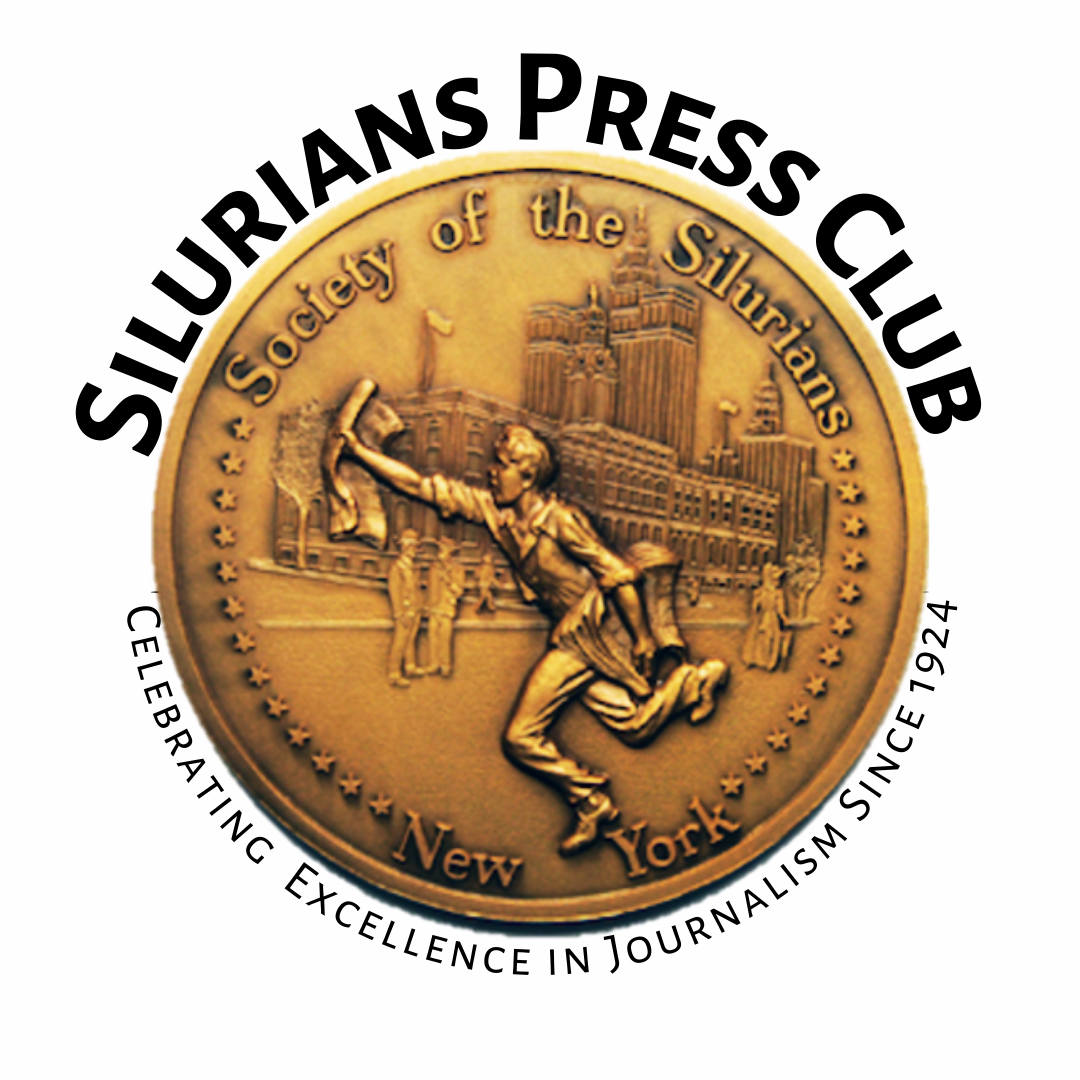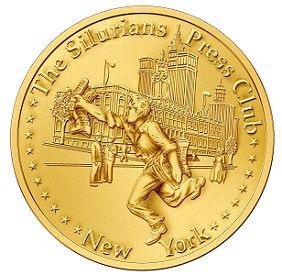
Julian Zelizer
History Repeats: Julian Zelizer on Power, Presidents, and the Press
By David A. Andelman
Seventeen years ago, Richard Galant, then managing editor of CNN Opinion, called the historian of the United States Senate. He was looking for someone to comment on the unusual fact that two senators, Barack Obama and John McCain, were running against each other for President. Galant was directed to Princeton’s Julian Zelizer, “one of the leading political historians of our time.”
Now, 17 years later, Galant introduced Zelizer at October’s Silurian luncheon noting that the historian’s “ability to recall the whole of American political history, going back more than a century is extremely impressive.”
Zelizer didn’t disappoint, captivating the packed audience at the National Arts Club.
Zelizer began, fittingly, with a bit of history about a President who refused to spend money allocated by Congress, insisting he had the right to do so. The President, who already hated the press from his first term, complained he was being subjected to devastating attacks on TV.
Then came the twist: “The story, though, is not about President Trump.” It was about Richard Nixon in 1972.
“The nation has wrestled with the problem that we have faced in recent months before—an imperial presidency,” Zelizer said. “Indeed, this country was founded in a revolt against centralized power.”
Turning to the power the press can and should wield, Zelizer said, “Every generation of journalists has different challenges that they need to overcome. Until the 1970s—the advent of Bernstein and Woodward—investigative reporters had been marginalized as gossip columnists or even worse, irresponsible partisans, agitators only interested in smearing and bringing down leaders.”
The context today is not dissimilar. “Today, we face an imperial presidency,” he said, recounting a now-familiar litany of complaints: weaponizing the Justice Department to go after political opponents, using claims of emergency power to enforce his economic program, strong-arming law firms, universities, and media organizations into deals, and more.
Still, Zelizer said a lot had changed since the 1970s, much of it for the better.
“Investigative journalism and reporting have become permanently entrenched,” Zelizer said. “Vastly more information is available quickly, to journalists as they cover what is happening in Washington.”
Still, journalism faced challenges and not all of them about Trump. “The long-form article has been displaced by TikTok video,” Zelizer said. “The fragmentation of popular culture, where everyone can stream whatever they want, whenever they want, makes it easier for people to tune out politics altogether.”
So, what happened? “Commercial pressures leave these organizations moving from one story to the other in search of clicks, content and viewers.”
He cited a recent Gallup poll that only 31 percent of Americans say they trust the mainstream media a great deal or a fair amount—slightly less than the 36 percent who say they don't trust it at all.
Moreover, with dramatic transformations in media ownership (remember the long-standing Graham family, stewards of the Washington Post, now in the hands of Jeff Bezos), Zelizer observed “boardroom considerations about what to publish might not always align anymore with what's best for the public interest.”
On a broader scale, Zelizer said, “We have seen excellent reporting on the rise of autocratic regimes in parts of Europe, on conservative populism on anti-immigration movements, that's taking place around the globe.” Placing American politics in a global context, Zelizer said, “throws light on what's happening right here.”
Zelizer encouraged today’s journalists to look at Instagram, even TikTok as vehicles of reaching new and younger consumers of information. “How do you bring the news to the places where people are going to consume them when they're under 30?” he asked. “We've seen these challenges in American journalism before. In 1954, Edward R. Murrow demonstrated the power of television.”
Zelizer wa asked by former Times reporter Leslie Wayne about the hourlong Zoom conversation he had engineered for a between Trump and a small group of historians,
Zelizer’s takeaway? Trump “clearly felt at a certain level that he could persuade the historians about how to think of himself. It was the brand or salesperson kind of thinking. And there was a kind of element of how he fits in history that he cares about.”
Turning back to history. “I'm just more worried about what will the place of historians and the writing of complex complicated, not always positive, not always negative history be it 20, 30 years from now. It's the same kind of pressure the press is facing. I still remain optimistic that we will figure a way out of it. But I think that's the threat that I start with, not about how to cover President Trump.”
—David A. Andelman, isa past president of The Silurians, a former NY Times and CBS News correspondent, and creator of Substack’s global Andelman Unleashed.


